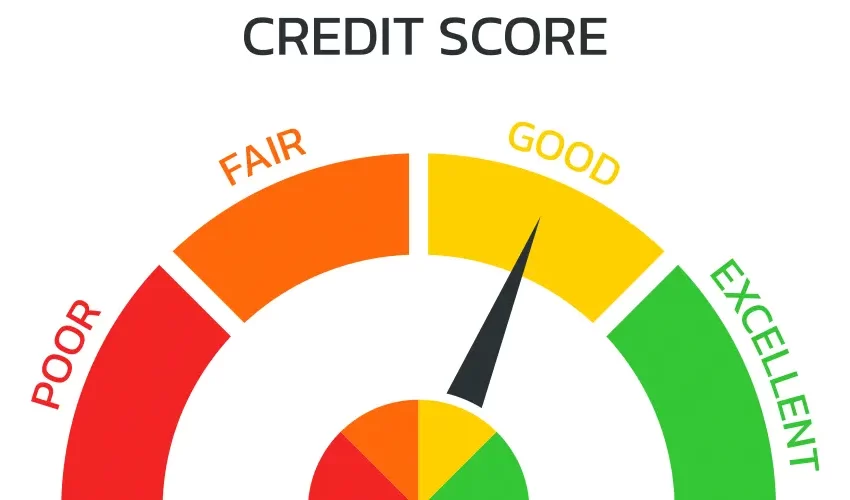In the world of personal finance, the choices we make can have a significant impact on our financial well-being. One of the most critical decisions we face is whether to rely on an emergency fund or a credit card when unexpected expenses arise. Both options have their advantages and disadvantages, and understanding how they affect your financial health, including your Cibil score, is essential.
The Importance of an Emergency Fund
An emergency fund is a savings account specifically designated for unforeseen expenses, such as medical emergencies, car repairs, or unexpected job loss. Having an emergency fund can be a financial lifesaver because it provides a safety net that allows you to cover these expenses without going into debt. Here are some key reasons why an emergency fund is essential:
- Financial Security: An emergency fund gives you peace of mind, knowing that you have a financial cushion to fall back on when unexpected situations arise. It reduces stress and anxiety associated with financial uncertainty.
- Debt Avoidance: When faced with an unexpected expense, using your emergency fund can help you avoid accumulating credit card debt. Credit card interest rates can be high, making it challenging to pay off the debt, which can negatively impact your financial health and Cibil score.
- No Impact on Credit Score: Using your emergency fund does not affect your credit score because you are not borrowing money or taking on debt. Your credit score remains intact, and you can continue to build a strong credit history.
- Financial Independence: Relying on an emergency fund promotes financial independence. You don’t have to depend on loans or credit cards to cover unexpected costs, which can lead to a cycle of debt.
The Role of Credit Cards
Credit cards are a convenient financial tool that many people use for everyday expenses, but they can also serve as a source of funds during emergencies. When used responsibly, credit cards offer several advantages:
- Immediate Access to Funds: Credit cards provide quick access to funds when you need them. This can be especially helpful in situations where you don’t have enough cash on hand.
- Rewards and Benefits: Many credit cards offer rewards, cashback, and other benefits for regular usage. Responsible credit card use can help you earn these perks.
- Build and Improve Credit Score: Consistently using and repaying your credit card balance on time can positively impact your Cibil score. Timely payments demonstrate financial responsibility and can lead to a higher credit score.
- Convenience: Credit cards are widely accepted, making them a convenient payment method for various transactions, both online and in-person.
The Dilemma: Emergency Fund vs. Credit Card
While both emergency funds and credit cards have their merits, the decision to use one over the other during financial emergencies should be well thought out. Here are some factors to consider when making this crucial choice:
- Nature of the Expense: Assess the nature of the expense. Is it a true emergency, like a medical bill or urgent car repair, or is it a discretionary expense? For genuine emergencies, tapping into your emergency fund is often the best choice.
- Financial Readiness: Evaluate your financial situation. Do you have an adequately funded emergency fund? If not, you may want to prioritize building one before relying solely on credit cards.
- Interest Rates: Consider the interest rates associated with your credit card. If your card has a high interest rate, carrying a balance can lead to significant debt accumulation. In such cases, using your emergency fund might be more financially prudent.
- Credit Utilization: Be mindful of your credit utilization ratio, which is the amount of credit you’re using compared to your credit limit. High credit utilization can negatively impact your credit score. Using a credit card for emergencies may increase your credit utilization if not paid off promptly.
- Repayment Plan: If you decide to use your credit card for an emergency, have a clear plan for repaying the balance as soon as possible. Paying only the minimum amount due can lead to long-term debt and financial stress.
The Impact on Your Cibil Score
Your Cibil score, also known as your credit score, is a crucial financial metric that lenders use to assess your creditworthiness. It plays a significant role in determining whether you qualify for loans and credit cards and at what interest rates. Here’s how your financial decisions regarding emergency funds and credit cards can affect your Cibil score:
- Emergency Fund: Using your emergency fund to cover expenses does not impact your Cibil score positively or negatively. It’s essentially a non-event as far as your credit score is concerned. However, having an emergency fund can indirectly help maintain a good credit score by preventing the need for credit card debt.
- Credit Card Usage: Responsible credit card usage, such as making timely payments and keeping your credit utilization low, can have a positive impact on your Cibil score. However, relying heavily on credit cards and carrying high balances can lead to a lower score due to increased credit utilization and potential missed payments.
In summary, the decision to use an emergency fund or a credit card during financial emergencies should be guided by careful consideration of your financial situation and the nature of the expense. An emergency fund provides financial security and peace of mind without impacting your Cibil score, while credit cards offer quick access to funds but require responsible usage to maintain a healthy credit history. Balancing the two and making informed decisions will help you navigate unexpected financial challenges while safeguarding your financial future.

